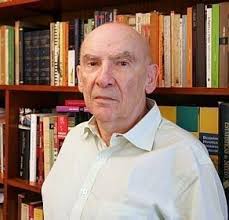GoodReads meta-data is 380 pages, rated 3.80 by 254 litizens.
Genre: History.
Verdict: A comprehensible narrative. Aaaah.

The first and hardest thing for me to grasp is just how long the Portuguese and Spanish have been in the Americas. Sailors in the employ of the Portuguese monarchy landed in what is now Brazil in April 1500. They began building permanent settlements in 1532 and remained thereafter. To avoid conflict among Christian nations with the threat of the Ottomans in the East, the Pope brokered a treaty dividing the new world(s) between Spain and Portugal, recognising that the Portuguese were already in Brazil to stay. That solved one problem and created another since neither catholic France nor protestant England or the Netherlands recognised that division.
Brazil began to pay for itself with the sugarcane, the price of which skyrocketed when the Haitian rebellion against the French all but eliminated it as a source of the commodity. This lucrative trade attracted the Dutch, first to trade in it and later to grow it in Suriname, as it is now called, and likewise the French. Conflicts followed.
But the most unusual conflict, however, was among the Portuguese. Three hundred years after first contact, Napoleonic France invaded Iberia. In the ensuing Peninsula War, the French continued into Portugal, which had long been associated with England as a counterbalance to Spain. The French pursued the British into Portugal and in 1808 the Portuguese royal court went into exile wholes bolus, setting sail for Brazil, numbering as many as 12,000 courtiers, soldiers, merchants, officials, priests, and others. The English cooperated for a mix of reasons, some political and some commercial. Banks in London lent money to the exiles to set up in Brazil where the King John VI declared the United Kingdom of Portugal, Brazil, and the Algarves (a province of Portugal itself like Holland in the Netherlands). There were also unrealised ambitions to extend this realm to the Portuguese African colonies of the time.
With the extinction of the Napoleonic threat by 1815 there were those who wanted to move the king and court back to Lisbon and return Brazil to the status of a colony ruled from there. Others wanted the court to remain, including the king for a time. Meanwhile, back in Lisbon a council governed with close English oversight in the royal absence, but in 1820 King John returned to quell the restive. (He was urged to return by the English who found the close oversight expensive and unproductive.) Now here is where the wrinkle sets it.
The king did not reduce Brazil to a colony, rather to placate local interests he left behind his son Pedro as Regent. Inevitably conflicts occurred between those who supported the Regent and those favoured autonomy or even independence, inspired by the distant example of the United States and fired by rebellions against Spain in its American colonies. Much manoeuvring followed.
The upshot was that in 1822 Pedro declared Brazil independent, even while in Lisbon lawyers were splitting hairs about the reversion of Brazil to one colony among many. A civil war of sorts ensued in Brazil between the Portuguese loyal to Lisbon and the locals. The French and Dutch stoked these fires to confuse the English, who were not quite sure whom to back, having sizeable commercial interest in both Brazil and Portugal. To distinguish him from his father the king of Portugal, Pedro became the emperor of the empire of Brazil. Compared to the long-lasting and bloody wars for independence in Spanish America’s colonies this transition was short. King John soon accepted this independence, partly in order to maintain commercial relations, lest the French intervene. At times Brazil invoked the Monroe Doctrine to ward off European interest in picking off part of its vast and underpopulated territory.
But wait, there is more! When King John died his presumptive heir was Pedro in Rio de Janeiro. The crowns were one, again, but not the nations. See? (No, neither do I.) Pedro soon abdicated the Portuguese throne in favour of one of his daughters who went to Lisbon to be queen.
While the author does not consider the general context, to this reader Brazilian independence in this way distinguished it from its other Latin American cousins. (1) The army was not the crucible that created the nation which it was in Argentina, Venezuela, or Colombia. Indeed the army was Portuguese and much of it left with the king. In its place were local militias which later morphed into a national army. But the Brazilian army did not create Brazil in contrast, say, to the Argentine army which created Argentina.

(2) When Simon Bolivar recruited armies to rebel against the Spanish he declared anyone who joined the fight was a free man be he white, black, or red and any shade between. While the liberation rhetoric of the King James Protestant Bible was absent, the message was indisputable, and at times Bolivar’s army was more dark than light, more Black and Red than White. In Brazil without this martial deliverance, race remained a fixed social identity and barrier, and all the more so because of the vast slave – mostly black but some red – population for the labour-intensive products: sugar cane, coffee, cotton, and rubber. Only external pressure and the vagaries of the markets for these commodities gradually led to emancipation. All of that made it a late entrant in attracting European migrants as a cheap source of labour to replace slavery.

